For or latest tips, click on this link
If you’re preparing to spend the long weekend touring in your caravan over the Bank Holidays you might want to take a look at the following…
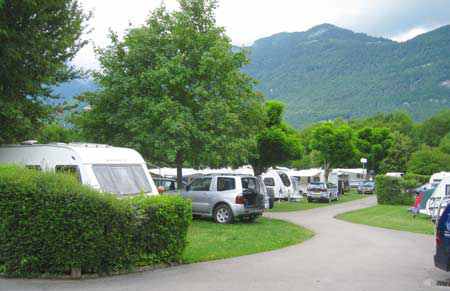
We see a sudden spike in customer claims at this time each year. Typically they involve tyres, towing, wheel locks and weight issues, but most are for accidental damage.
Our statistics show that on average touring caravan owners are more than twice as likely to make a caravan insurance claim over Easter and on Bank Holidays than at any other time of year.
We have put together the following tips for avoiding most common Bank Holiday caravan mishaps.
#1 Check tyre pressures, condition and age
Inspecting tyres for damage and checking tyre pressure before a journey is always sensible if you want to reduce the likelihood of making a claim. If you’re not one of the 70% of people who told us you check your tyres before each journey in a recent poll, you may find that tyres may have become misshapen or lost pressure over time, especially if the caravan’s been stored for a long period of time.

Tyres that are damaged and tyres that are either overinflated or underinflated are prone to blow outs and blow outs can mean even the most competent caravanner loses control of their towing outfit. If the caravan overturns as a result of the blow out it will almost certainly be an insurance write off.
Check out our tyre top tips or find out more on how to protect against blow outs.
#2 Prevent theft whilst on site
Fitting security devices such as wheelclamps and a hitchlock as soon as you arrive on site is a great way to reduce the risk of caravan theft.
Activating an audible security alarm could also prevent theft of contents and break-ins.
Read our guide on how to prevent your caravan being stolen and how to prevent theft of items or take a look at some of the security devices we reward with an insurance discount.
#3 Load carefully
How you load the caravan could not only have a detrimental effect on towing but could also lead to a serious road accident. In extreme cases overloading a caravan is illegal so it’s crucial that you take the time to load correctly.
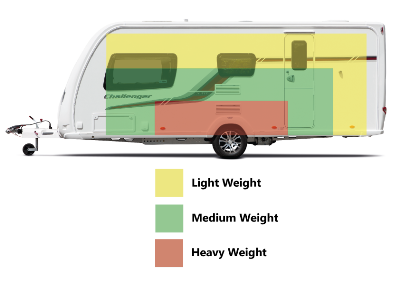
Looking at the items you’re taking with you, it’s likely they vary in weight and size. Place heavier items in the centre and add the lighter items upwards and around. This will create a centre of gravity inside the caravan and aid stability during towing.
Check out the guide to loading your caravan for details.
#4 Reverse like a pro
Recent studies show that 29% of all touring caravan insurance claims were from customers who had hit immobile objects such as walls, posts and gateposts when manoeuvring or reversing their caravan. Often these accidents occur when the caravan is being taken out or out back into its storage location.
The slightest misjudgement has led to bumps, knocks or collisions which can end up costing thousands. In fact the average reversing repair costs stands at £1819.
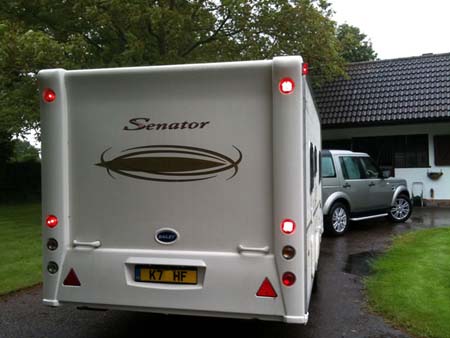
Don’t let your caravanning trip start with a bang! Last year we compared some of the best reversing camera systems available to see which features work best and why.
For hints and tips on reversing take a look at our How to reverse like a pro guide.
#5 Fit towing mirrors
A fundamental part of safe, careful towing is making sure you have the suitable towing mirrors.
Investing in good quality towing mirrors will not only make reversing much easier, it will also give you a better view of how and where the caravan is moving on the road during towing.
Towing mirrors also allow greater visibility and help you to spot other drivers or obstacles in good time.
Read Tim Booth’s towing mirrors guide for expert advice.
#6 Check your noseweight
Another essential area to check before any safe journey is the caravan’s noseweight. If the noseweight is too light the caravan and towcar may become unstable causing the caravan to lift the rear of the towcar; and if it’s too heavy the steering may be affected.
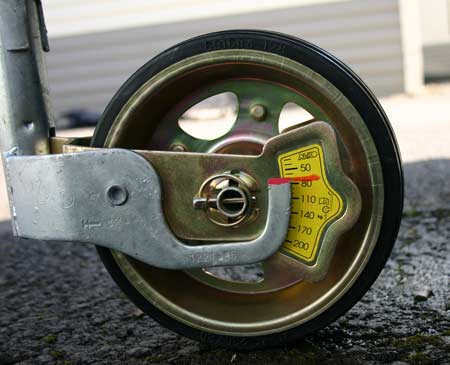
Find out how to measure and adjust noseweight.
#7 Prevent snaking and jack-knifing
Would you know what to do if you found yourself in a snaking situation? Snaking is a dangerous situation for any caravanner to find themselves in – it’s even scarier with passengers in the tow car.
Jack-knifing and snaking claims accounted for just 1.6% of claims back in 2012 but despite the low figure, when instances do occur, the cost of the damage to the caravan is often catastrophic – over £8000 on average.
Find out everything you need to know on snaking and jack-knifing, including ways to prevent it happening to you, here.
#8 Check wheel nuts
Accidents where caravan wheels have fallen off in transit have become increasingly common in recent years. It’s not always cheap to repair the damage after wheel detachments have taken place and the potential dangers to other motorists are huge.
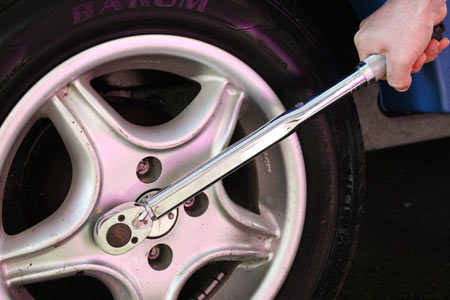
Like checking tyre pressures and condition, it’s always best to check tightness of wheel nuts before every journey. If you’re not sure of the wheels’ specific torque, it should be detailed in your caravan handbook.
There’s more advice on wheel nuts, including which products to use, how to recheck the torque once tightened, and the types of wrench available, here.
#9 Extra equipment to prevent mishaps
Why not invest is some extras to help you avoid some of the most common accidents? Check out these gadgets and gizmos:
- Tyron bands – designed to help you stay in control of your car and caravan if your caravan tyres suffer a blowout. 5% discount available
- TyrePal Tyre Pressure Monitors – designed to alert you if your caravan tyres lose pressure 5% discount available
- WSL wheel bolts – designed to prevent wheel theft and detachments
- Wheel lock 10% discount available
- Reversing aids and cameras
- AL-KO Active Trailer Control 5% discount available


I made a claim for split shower cubical walls after we hit a large deep pothole. I took all the evidence I.e. photographs, measurements and road traffic/weather conditions at the time. This was forwarded to the council and I put a claim of over £900 for new shower walls.
However, first the council declined my claim by stating that the road has regular inspections and that no other claims had been made on this particular pothole. They then sent a 25 page disclaimer to my insurers who agreed with the council. I had copies of the disclaimer and on pages 19 & 20, the council accidentally sent copy emails of other claims on the same pothole. Obviously, my insurers hadn’t bothered to read this and fight my claim.
I then sent a F.O.I. request to the council asking when and how was this section of road was inspected. They stated that it was last inspected last November, it was March (4months later) when I hit the pothole. Also, the inspector travels just one way and inspected both sides at once. This again was an impossible task as the pothole was on a major road controlled with traffic lights for a very busy major supermarket and cars were constantly queuing.
My insurers (not Caravan Guard) then sent an inspector to assess my damages. In his report, he stated that he ASSUMED the shock obsorbers on my van would have taken any shock from the pothole and that the crackes in the walls were from ‘ware and tare’.
How many of you have seen cracks in walls from ‘ware and tare’?
I won my hard fought claim by stating that the insurers accident inspector was specialists in CAR claims and not caravans, that his ASSUMPTION about the shock obsorbers was a guess and not a fact and that the council inspections and repair procedure was inadequate.
Thanks for your comment Dave. We’re sorry to hear of your experience with another caravan insurer. Rest assured, we and our underwriter’s RSA invest a lot of time and money to make sure that loss adjusters working on our policyholder claims are specialists in caravan damage.
Simply get along to Halfords and buy some Threadlock. Take out the wheel bolts and put a small blob on the thread. Re- tighten all round and you won’t have this problem. Easy.
Good advice that is an important part of every caravan/motorhome trip to be undertaken.
I must say however, that I don’t get why we caravaners are meant to accept that the wheels on caravans (Always, the nearside!) fall off! When was the last time you took your car for a service, then followed that by doing the job yourself? Do you routinely (every trip) re-torque your cars wheel nuts? Do you even have a torque wrench for this job? Of course not! You paid a man to do it during its service!
The whole caravan industry, hide behind their claim that if the bolts are rechecked correctly, then they believe they are fine. I note, my caravan has just had its service and attached with the paperwork is a updated disclaimer. Which now states that you should re-torque your caravan wheel nuts, EVERY thirty mins or 30 miles! So I can foresee, that the motorway hard shoulder will be in great demand by caravaners this summer! This farcical affair, surely cannot be allowed to go on much longer. But this will only be addressed when such as insurance companies, pressure the manufacturers to resolve this issue. Because we, the consumers have very little influence in this (Alko’s stated claim, when I approached them, was that there isn’t/hasn’t ever been a problem with caravan wheels becoming undone and detaching! It is easily possible, to make a caravan wheel stay on the caravan, as can be seen by the links in the article above, so why are the caravan/trailer manufacturers allowed to play roulette with our wellbeing?
In my our personal experience, my nearside wheels fell off, directly after having an expensive full service at a highly respected Major Caravan Dealer. I had only traveled 19 miles, when both nearside wheels fell off! It was a twin axle caravan, which I had hoped would give me a greater margin of safely, but sadly, didn’t! None of the offending wheel bolts were ever found!, This incident caused massive damage to the caravan. But luckily, no-one was hurt.
But I then had a major battle with the dealer responsible, who initially claimed, that I hadn’t done their job for them! They pointed to their service disclaimer, to check the bolts after 30 mins and/or 30 miles (I had done 19 miles and 20 minutes of travel)! They then even tried to get me to claim on my own caravan insurance! Please don’t think you would have any help from any of the related industry, they all run for cover (Alko, the NCC, Caravan Club, the so called independent engineers etc, all cite they have conflicts in interest! But without an expert witness, you cannot take court action! So this ultimately cost me many thousands of pounds, as we had to buy another caravan.
The most surprising points where that, this caravan dealer and many others didn’t even sell Torque Wenches (They do now!), yet sell hundreds of caravans yearly! Since this episode, I have found that, whenever I mention my story, while out caravanning, so many other caravaners own up, with their own stories of wheels being lost or coming lose! So it appears to be a far more common problem, but most owners get lucky and discover the problem before serious damage occurs. But all of them, had then believed it to be their own fault! So well done to the industry, they sure know how to deflect their responsibility. Maybe their salesmanship experience is so good it overcomes all sense!
Thanks for your comment Shaun. We have had quite a few instances of wheels falling off in recent years. It is certainly good practice for caravanners to check regularly.
We’re sorry you’ve had such a bad experience with wheels falling off. We agree that it is not practical to re-torque wheel nuts every 30 minutes or 30 miles!
The WSL wheel bolts can help prevent wheels falling off : WSL Wheel Safety Bolts
Kind regards
Craig
People really should not need to be told these basic things.If they can’t think to check pressures,wheel nuts,etc then perhaps they shouldn’t be out on the roads,endangering us all!!
Great article. So pleased you included a tip about setting the correct torque on wheel nuts before every trip. We do it during the journey too, and sometimes there is a need to tighten the wheel. Investing in WSL wheel nuts, which are designed not to come loose, is also a good idea and not expensive compared to a wheel coming off. Personal experience tells us that having a wheel fall off while travelling is not a good idea!
Sound advice . If you have ever seen an overturned caravan on the motorway it’s a sober reminder to check out your outfit before your journey, therefore safeguarding your family and a spoilt holiday.
Our thoughts exactly Arthur, it’s better to be safe than sorry!
Lucie
Caravan Guard
this is not just bank holiday but every trip, we must practice safety and always look for ways to lessen or eliminate risk
Wise words… Even for us Motor Caravaners… Tyres especially.. How do we fair as far as claims are concerned over these Bank Holidays ?
Your advise re Bank Holiday mishaps is very welcome and also acts as a sound reminder even to the most experienced caravanners.
Thanks Brian! Glad you see you found it useful.
Lucie,
Caravan Guard